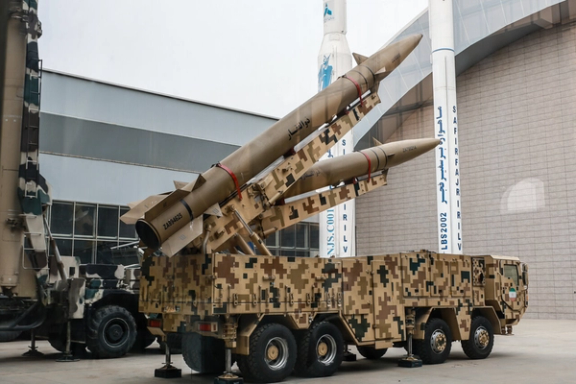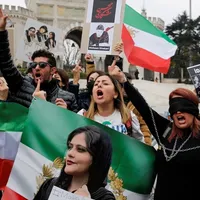Multiple New Executions In Iran Raise Human Rights Concerns
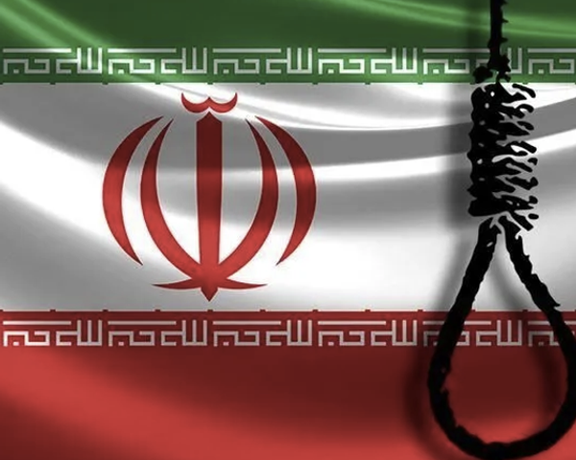
Human rights organizations have raised alarm over more executions in Iran, with at least nine individuals hanged in the past two days alone.

Human rights organizations have raised alarm over more executions in Iran, with at least nine individuals hanged in the past two days alone.
Four prisoners were executed for alleged drug-related crimes, while five men from Marand faced execution on charges of rape. The situation has garnered international attention as concerns mount over the Iranian government's capital punishment practices.
On Wednesday, Manouchehar Khazaei, a former member of the police force, was executed in Hamedan for drug-related offenses. Additionally, Hossein Nasiriyan and Hasan-Ali Shakib were hanged on Tuesday in Shiraz Central Prison, both on drug-related charges. Another prisoner, Ahad Hashemi, was executed in Hamadan prison on Wednesday after spending seven years in jail for drug crimes.
Meanwhile, the execution of five men from the northwestern city of Marand for alleged rape was carried out on Wednesday, though the identities of the executed individuals have not been disclosed by Iranian authorities or media.
The human rights organization Hengaw has further expressed concern regarding potential death sentences for four protesters from Sanandaj, accused of "moharebe" or "war against God" during the revolutionary uprising.
These executions coincide with a recent report from the United Nations High Commissioner for Human Rights, highlighting a distressing trend of increased capital punishment in Iran. The report revealed that in 2022, 582 individuals were executed—a staggering 75% rise compared to the previous year's figure of 333. Notably, this included the execution of three juveniles.
In 2023, alarming parallels persist, with 94 executions recorded in January and February alone. The report also highlights the execution of several individuals allegedly involved in nationwide protests.

The US State Department reiterates its commitment to Iranian women's rights amidst President Ebrahim Raisi's comments on intensified hijab enforcement.
Matthew Miller, the State Department Spokesman, on Wednesday emphasized the importance of allowing women to make personal choices about their attire.
"It is our belief, as we’ve said before, that women in Iran and everywhere should be free to wear what they want," said Miller. "Iranian women should not have to worry about Iranian authorities using surveillance technology or any other methods to impose control over them. The United States has and will continue to take action to support the human rights and fundamental freedoms of the people of Iran, including women – the women and girls of Iran, and to work with allies and partners to pursue accountability for the perpetrators of human rights abuses."
Raisi's recent statement, issued on Wednesday, threatened an end to protests against the hijab, attributing them to foreign influences. He pledged to employ a response to quell the protests and "raise awareness" among those not adhering to the hijab.
"Certain individuals, not adhering to hijab, may lack awareness. Our duty is to raise their awareness,” Raisi asserted, adding that "foreign influences are orchestrating an organized campaign to abolish the hijab."
Raisi's announcement comes against the backdrop of ongoing defiance by Iranian women and girls against the compulsory headscarf. Notably, Raisi's comments arrive weeks before the anniversary of the tragic death of Mahsa Amini while in the custody of the morality police.
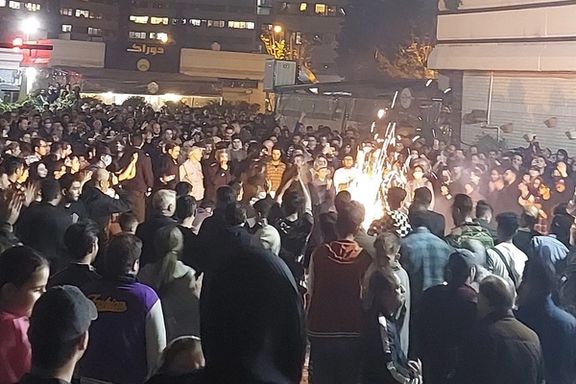
The Revolutionary Guards (IRGC) spokesman threatened Iranian journalists this week not to help the enemy with their work, meaning to avoid critical reporting.
"Creating hope against the hostile media’s attempts to cause disillusionment is one of the most important missions of those working in the media," stated Ramezan Sharif during a ceremony on Monday, held in honor of National Journalists Day (August 8).
President Ebrahim Raisi visited the state broadcaster (IRIB), a massive organization with over 40,000 employees, to express his appreciation for their work, ahead of Journalists Day. In a brief speech, he asserted that his government listens to criticism.
However, Iranian journalists are currently remembering two colleagues who have been imprisoned for almost a year due to their reporting on the death of Mahsa Amini while in custody in September 2022. They are also paying tribute to over a hundred other journalists who have been arrested since then and handed various punishments, including prison sentences, bans on using mobile phones and social media, travel restrictions, and even lashes.
Several newspapers, including Shargh, Ham-Mihan, and Etemad, dedicated articles on Monday to Niloofar Hamedi, a reporter from the reformist Shargh newspaper, and Elaheh Mohammadi, a reporter for the reformist Ham-Mihan.
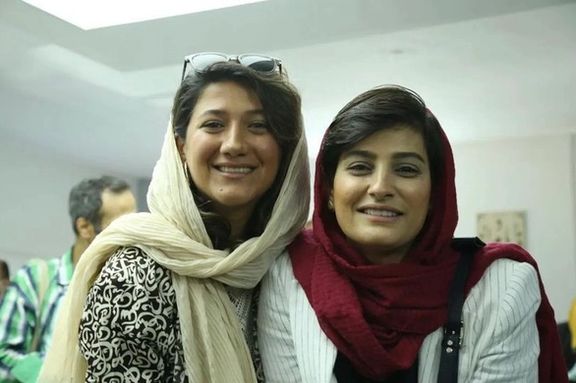
These two young women were the first journalists to cover Amini’s story, which sparked widespread protests across the country from mid-September to early January.
Under the headline "Journalists More Abandoned Than Ever," with photos of the imprisoned journalists displayed on its front page, Ham-Mihan, a newspaper not directly controlled by the government, highlighted the intensified lack of freedom of speech and job security that journalists have faced in the past year. The newspaper stated that journalism has now become a "high-risk" profession.
Since last year’s protest movement, the press has had to contend with "professional claimants" who scrutinize newspapers daily to find reasons for legal action. Ham-Mihan added that authorities expect both print and online media to align only with the views of those in power.
A photo taken by Hamedi at the hospital where Mahsa Amini was in a coma in 2022, with her parents embracing her, rapidly spread across social media platforms. Amini had been fighting for her life for three days after sustaining injuries during her arrest by the morality police for wearing her hijab “improperly.”
Mohammadi in turn managed to travel to Amini’s hometown of Saqqez in western Iran to report on her funeral on September 17, which thousands attended.
The two journalists, accused of being CIA agents by the Revolutionary Guards' intelligence organization (SAS), faced charges of propaganda against the regime and conspiracy to commit acts against national security.
Hamedi and Mohammadi were tried behind closed doors in June and are awaiting sentencing. Since their arrest over 310 days ago, they have been denied family visits on many occasions, have never been granted furlough, and have been denied access to an attorney during their trials.
Dozens of other journalists are currently awaiting sentencing. Some have been banned from journalism, including Etemad newspaper’s managing director, Elias Hazrati, who was recently prohibited from any media work for a year.
Elaheh Mohammadi’s twin sister, Elnaz Mohammadi, who has also been a journalist for over a decade, told Etemad newspaper that her sister and Niloufar Hamedi were driven by their commitment to society and their calling as journalists.
“There is pain, and it’s so heavy that it diminishes hopes for the future of journalism in Iran. But I must say, the light is still alive and shining,” she said.
“Journalists’ Day is still a good occasion for us to remind ourselves of what is happening to the media in the country, how much we have to self-censor, and sometimes not do what we thought was one hundred percent right,” Niloufar Hamedi’s husband, Mohammad-Hossein Ajorlou, told Etemad.
Government pressures on journalists are forcing them to leave the country, pursue other jobs if they choose to remain in Iran, or compromise the quality of their work to avoid trouble if they continue as journalists, Ajorlou added."

The British Ambassador to Iran has been summoned to Iran’s foreign ministry after he published comments calling for the release of jailed journalists.
Simon Shercliff tweeted on Tuesday, acknowledging Iran's celebration of August 8 as the 'Day of the Journalist'. The ambassador expressed solidarity with journalists facing hindrances in their work and called for the release of arbitrarily detained individuals, including journalists.
The Iranian Ministry of Foreign Affairs deemed these remarks as "irresponsible, and out of diplomatic norms," asserting that such comments amounted to interference in Iran's internal affairs and were unacceptable. Shercliff was then summoned to the ministry.
"The UK, with its indefensible record towards the Iranian people, is not in a position to comment on the Islamic Republic of Iran. Here is the Islamic Republic of Iran, and we will not allow the sovereignty of the country to be neglected with arbitrary actions," stated the foreign ministry.
Iran has been facing international criticism for its press freedom record for decades. The country ranks third globally in terms of incarcerated journalists, trailing only China and Myanmar, according to recent reports. The 2023 World Press Freedom Index, compiled by Reporters Without Borders (RSF), positioned Iran at the lowest rung on the list, only marginally above countries such as Vietnam, China, and North Korea.
Over the years, Iran has detained hundreds of journalists, writers, and bloggers, often on charges of jeopardizing national security through the expression of their opinions. Tragically, some of these individuals lost their lives while in custody.

A mother and daughter were harassed for donning optional attire in defiance of mandatory hijab, and the young girl passed out after pressure from government agents.
The incident happened at a metro station in the southern city of Shiraz, when a confrontation took place between authorities and a mother and daughter who were wearing optional attire in defiance of mandatory hijab.
Reports say officers initially obstructed the two females from entering the metro station and this sparked a prolonged verbal exchange. After the intervention of onlookers, the duo circumvented the government agents and gained access to the metro station. However, as they ascended the escalator, the strain of the situation reportedly took a toll on the young girl, and she fainted, losing consciousness.
Bystanders rushed to her aid upon the escalator's deactivation and medical personnel rushed to the scene. Subsequent reports indicate that law enforcement was called upon to disperse the crowd and discourage further filming of the incident.
This occurrence follows a broader pattern of intensified efforts by conservative factions to reinforce hijab adherence throughout Iran and has reignited the ongoing debate over the mandatory hijab rule. This recent wave of protests has intensified following the death of Mahsa Amini in police custody last September, which was a consequence of the morality police campaign targeting women for the removal of hijab.
Historically, individuals found to be contravening hijab regulations have been subject to monetary fines, while repeat offenders potentially faced more severe penalties, including incarceration and corporal punishment. Activism against the mandatory hijab decree also carries significant legal ramifications, including the prospect of prosecution and imprisonment.
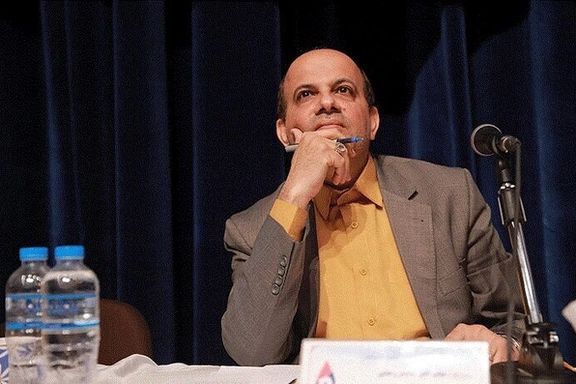
The National Iranian Oil Company (NIOC) has announced plans to boost its oil production by an additional 250,000 barrels per day (bpd) by the end of the summer.
According to a report by the semi-official Tasnim news agency, this move is expected to elevate Iran's total daily oil production to 3.5 million bpd. NIOC Managing Director Mohsen Khojasteh-Mehr was quoted by Tasnim as stating, "Iran's oil production will reach 3.5 million bpd at the end of summer."
The backdrop of this production surge lies in the aftermath of the 2015 Joint Comprehensive Plan of Action (JCPOA) agreement, which saw the lifting of international sanctions on Iran and a subsequent increase in revenues. During this period, Iran's oil revenues temporarily soared to $66 billion in 2017. However, this upward trajectory was disrupted after the United States withdrew from the JCPOA in May 2018, which led to renewed sanctions that intensified a year later. As a result, Iran's oil exports faced a significant decline, falling to between $15 - $20 billion by 2020. The tide began to turn towards the close of that year after the election of US President Joe Biden, who expressed intentions to reinstate the JCPOA. China, in response, embarked on a trajectory of heightened oil imports from Iran.
However, the recent influx of revenue from increased oil exports has sparked questions among economists and business analysts in Iran and around the world. Notably, Iran's national currency, since the beginning of the year, has lost more than 25 percent of its value against the dollar on the open market. Critics contend that the substantial oil revenues have not yielded the anticipated positive impact on the economy, due to government tax policies and other factors.
